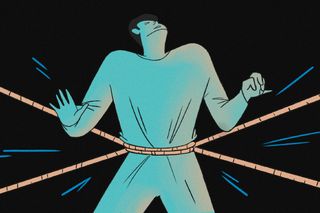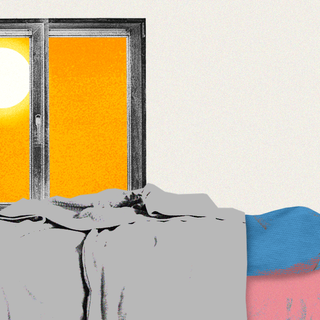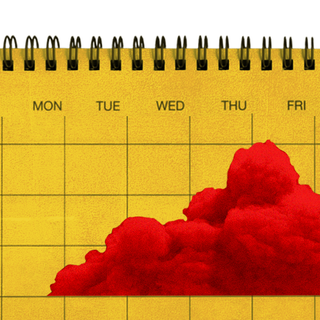
What It’s Like To Live With: Irritable Bowel Syndrome
“I could be in the middle of work, at a client meeting, or even in court — and I might suddenly feel a trigger because of something I may have eaten.”

What It’s Like to Live With explores the stories of people who see and experience every day a little differently.
I was in law school from 2010 to 2015, and the hostel food was absolutely inedible. So, I ended up either skipping meals or eating outside very, very often — probably three to four times a week, and mostly junk food. After about three years of doing this, I realized I had gained a considerable amount of weight despite having decent metabolism. Something felt wrong — at one point, I realized I didn’t have enough energy to get through the entire day. Then, there were times when I would have to rush to the loo in the middle of the class, and at really odd hours. For about seven months, I neglected it — thinking it was just diarrhea.
But then I went back home during a vacation. Here, I noticed over a period of weeks that every time I would eat food, I’d immediately have to rush to the toilet. It got extremely uncomfortable, of course — to stop that process, I would just stop eating. It was a little scary. I ended up googling my symptoms, and then decided it was probably time to see a gastroenterologist. That’s how I got my diagnosis around 2013-14.
Initially, I found it very difficult to deal with the reality of living with this condition — I didn’t like the idea that I would just have to accept that I have to keep going to the loo many, many times a day. Of course, that also puts a lot of restrictions on family trips or outings with friends. And accounting for it isn’t the easiest — you don’t know how many times you may end up rushing to the loo or how often; there’s no fixed timeline.
The unpredictability that IBS brings can make navigating life rather challenging. To overcome them, I had to train my mind and understand my body better — for instance, after carefully observing how my body reacts to different foods, I’ve been able to decide that it’s almost always a better idea to have rice and dal over gluten. There are certain foods — like sugar and milk — that I’ve had to eliminate completely because they can trigger my IBS. So, no matter how much I might crave a milkshake or a cold coffee, I must make a conscious choice to avoid it.
Related on The Swaddle:
All You Need to Know About Irritable Bowel Syndrome
It’s been a very long journey from the time I got my diagnosis to 2022. I’m 31 now. And I must say that between my condition in the first three years, and my condition now, there is a marked difference — all because of the way I’ve managed to control myself and manage it. IBS has also made it important for me to learn to say “no” to others every time they offer me something that can further mess up my digestive system. Disclosing your condition might not be the easiest thing to do; given that it concerns bowel movements, there may be a little bit of shame and stigma involved. But at the end of the day, it’s your body, and you have to prioritize it.
Despite the precautions, IBS can still get very uncomfortable, very unnerving at times, though. For the first four years since my diagnosis, I didn’t really need any accommodation at work; I had free access to the loo at all times. Things got a little more difficult when I switched my careers and decided to litigate. I could be in the middle of work, at a client meeting, or even in court — and I might suddenly feel a trigger because of something I may have eaten. Basically, there are times when I can’t control my body’s reaction, and I absolutely have to take a break for my comfort. To put it simply, it can take a toll on your professional life. I think that’s why it’s better to sensitize my bosses and colleagues about my condition, rather than trying to hide it.
Of course, there is a tendency among people who do not have this problem — or have zero understanding of the condition — to make fun of it. I have faced this; people tend to brush off the condition or say things like, “How can you go to the loo so many times?” after I tell them I need to use it maybe six, even seven, times a day. They don’t realize it’s a genuine disease where your gut is inflamed, and where you have to keep rushing to the loo because this is an urge you cannot possibly control.
Our apprehension of how the other person might react, though, can prevent us from disclosing our condition to them. But, in the process, it can become more difficult for us to live with it. For the first couple of months since my diagnosis, I barely went out and met people. I realized I got extremely depressed, at the time. So, even if it takes a while to get comfortable with the idea of coming out, I’d say one still should — better late than never, right?
This interview has been condensed and edited for clarity. As told to Devrupa Rakshit by Rohan.
Devrupa Rakshit is an Associate Editor at The Swaddle. She is a lawyer by education, a poet by accident, a painter by shaukh, and autistic by birth. You can find her on Instagram @devruparakshit.
Related


People Are Sleeping Less Because of High Temperatures Globally, Shows Research
